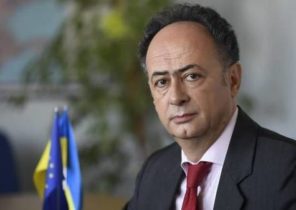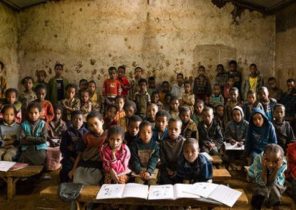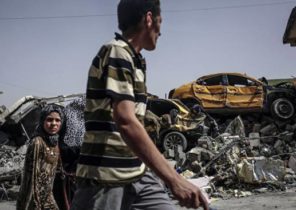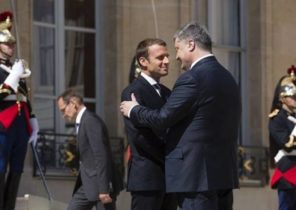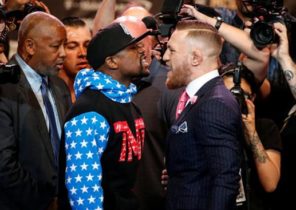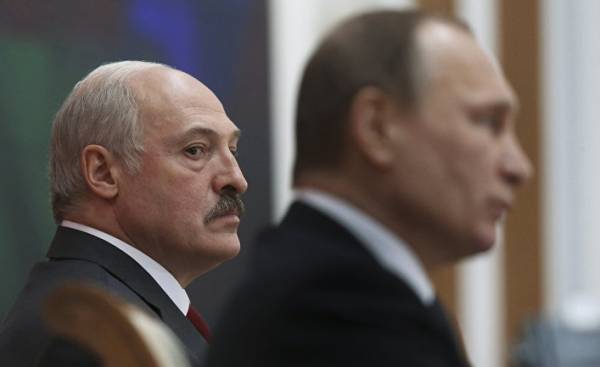
The Belarusian dictator Alexander Lukashenko now — like much in the pan. On the one hand, temptations on the part of the EU, with another — pressure from Russia. He lives with his Ukrainian dilemma.
Geography — harsh reality
It is well known in the country where the story is like a play the harmonica with borders. As you know, the best definition of Poland is a large European country whose borders have, unfortunately, never be in the same place. Although neighboring countries — Belarus and Ukraine — much younger than Poland, as a nation-state, these countries and their population have fluctuated in rhythm with the shrinking and expanding of Poland. In this part of Europe know very well that geography is destiny. Tested on itself.
Alexander Lukashenko has managed successfully to balance between Russia and the EU. Sometimes aggressive, as, for example, in the late 1990-ies, when he suddenly had ambitions to gain control over Russia by creating a Union state with Russia in 1999. Cherished the thought Lukashenko was then that the power vacuum that was left behind sick and drunk President Boris Yeltsin, could be filled by him. This remained a dream. The Russian elite is gradually United around Vladimir Putin, and the rest remains in the history.
Lukashenko is now as much in the pan
The explanation must be sought, primarily, in the Ukraine. From the point of view of Moscow, Belarus even more than Ukraine, public education, is a misunderstanding, it’s actually just a continuation of Russia itself. Therefore, the fact that Lukashenko is now made visa-free entry for Americans and citizens of EU countries to acquire Western investments and benefits associated with the EU — a provocation. This happens at the same time as Belarus and Russia are in dispute over prices for Russian oil and gas, which Belarus traditionally receives at discounted prices.
We can say that Ukraine very much has changed for Belarus and its 10 million inhabitants. What happened in Ukraine in connection with the revolution in February 2014, the annexation of Crimea in March and the beginning of a Pro-Russian military mutiny in may, showed that Belarus will also become the object of pressure exerted by Russia if the country will elect a more Western course than it will please the Kremlin.
But Ukraine for Lukashenka was not only a problem, it was also a platform. The Minsk talks in the Belarusian capital resulted in the fact that the worst hostilities in Eastern Ukraine were stopped. To make the compromises necessary to put an end to the bloody military action, called on German Chancellor Angela Merkel. But the negotiations in Minsk were also the platform from which Lukashenko was able to show themselves.
On this platform was not “Europe’s last dictator” — and that way it knew for a long time — but the leader who created the conditions for critical dialogue. More recently, the easing of such tensions with the EU over the lifting of sanctions, and, eventually, led to the Treaty, which gives citizens of certain countries eligible for visa free entry to Belarus, if they arrive by plane and are there for less than five days.
This created problems for Russia, which now sets the border controls on its border with Belarus. Without border control, the Europeans and the Americans could from Belarus to come to Russia, and that Russian President Vladimir Putin can not prevent.
For many years the Russian subsidies have supported life in the anachronistic social model, which has sworn allegiance to Lukashenko. This is a little piece of the Soviet Union, where there is everything from planned economy, collective farms and state farms to large-scale political oppression and the KGB. But the EU has also meant a rapprochement with the opposition, and the election last year in Parliament for the first time in many years, was elected two members of the opposition.
But in the economy of things go wrong. In 2015, GDP fell by 3.9% and last year by 2.6%. For many years Lukashenka justified the legitimacy of his regime stable economy and standard of living — now he is forced to seek legitimacy for a regime that is perceived as a more independent course in relations with Russia.
Some fear that Russia will try to destabilize Belarus — just as it contributed to the destabilization in Ukraine in 2014. And some say that Putin can use the summer joint military exercises “the West” to establish military control over Belarus. During a training exercise in Belarus will be tens of thousands of Russian soldiers. But whether Putin such a risk? Border country — and the fate.
